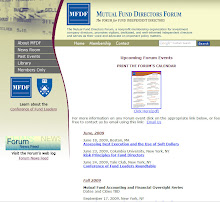The objectives of this OTC reform measure are:
1. Preventing Activities Within The OTC Markets From Posing Risk To The Financial System
Th Administration proposes amending the Commodity Exchange Act and the securities laws to require standardized OTCs be cleared through regulated central counterparties. Also, all OTC derivative dealers and firms who create large exposures to counterparties will be brought under a regime of regulation and supervision, including:
- Conservative capital requirements
- Business conduct standards
- Reporting requirements
- Initial margin requirements with respect to bilateral credit exposures on both standardized and customized contracts
This will be achieved by imposing a reporting regime upon every participant in the OTC market. The Administration proposes amending the Commodity Exchange Act and the securities laws to impose:
- Recordkeeping and reporting requirements (including audit trails).
- Requirements for all trades not cleared by CCPs to be reported to a regulated trade repository.
- CCPs and trade repositories must make aggregate data on open positions and trading volumes available to the public.
- CCPs and trade repositories must make data on individual counterparty's trades and positions available to federal regulators.
- The movement of standardized trades onto regulated exchanges and regulated transparent electronic trade execution systems.
- The development of a system for the timely reporting of trades and prompt dissemination of prices and other trade information.
- The encouragement of regulated institutions to make greater use of regulated exchange-traded derivatives
Commodity Exchange Act (CEA) and securities laws should be amended to ensure that the CFTC and the SEC have:
- Clear and unimpeded authority for market regulators to police fraud, market manipulation, and other market abuses.
- Authority to set position limits on OTC derivatives that perform or affect a significant price discovery function with respect to futures markets.
- A complete picture of market information from CCPs, trade repositories, and market participants to provide to market regulators.
According to the release, the SEC and CFTC are reviewing ways in which participation limits may be tightened, disclosure requirements heightened, or standards of care imposed on those marketing OTC derivatives to protect unsophisticated parties from entering into unsuitable derivatives transactions.
A number of these reforms will require amendment of the the Commodity Exchange Act and securities laws, and will therefore require a great deal of coordination with Congress and consultation with the SEC and CFTC to effect. Because there are so many players in the mix, this reform effort bears close scrutiny as it moves through the process of drafting, negotiation, and implementation.
SEC Chairman, Mary L. Schapiro, hailed this announcement:
There is widespread agreement that OTC derivatives, particularly credit default swaps, may have contributed greatly to the financial mess we're cleaning up today. Unfortunately, the lack of clear regulatory authority over this vast market has hindered the ability of regulators to fully understand how this market functions or to ensure that basic standards of fairness are followed.
There is agreement now that this needs to change.
. . .Mitigating the systemic risks created by OTC derivatives has obviously been a central goal of these efforts. We have been very supportive of the efforts to improve the risk management practices of OTC derivatives market participants. Further, we have supported the efforts to move credit default swaps — an important segment of the OTC derivatives market — onto a central clearing platform. While more work needs to be done to provide facilities for clearing of standardized OTC derivatives, the clearing of CDS is an important step.
I look forward to continuing to work closely with the other financial regulators to address the systemic risk, market integrity, and investor protection concerns with OTC derivatives.
The full text of the Treasury Department's press release announcing this initiative is available at: http://www.treas.gov/press/releases/tg129.htm
SEC Chairman Schapiro's statement on Treasury's announcement is available at: http://www.sec.gov/news/speech/2009/spch051309mls.htm
Related stories:
"Commissioner Walter's 'Principles to Help Guide Financial Regulatory Reform," April 14, 2009
"Treasury's Framework for Regulatory Reform," April 8, 2009
"Committee Releases Draft of Derivatives Legislation," February 12. 2009
"PWG Initiatives on OTC Derivatives Oversight and Infrastructure," November 14, 2008





